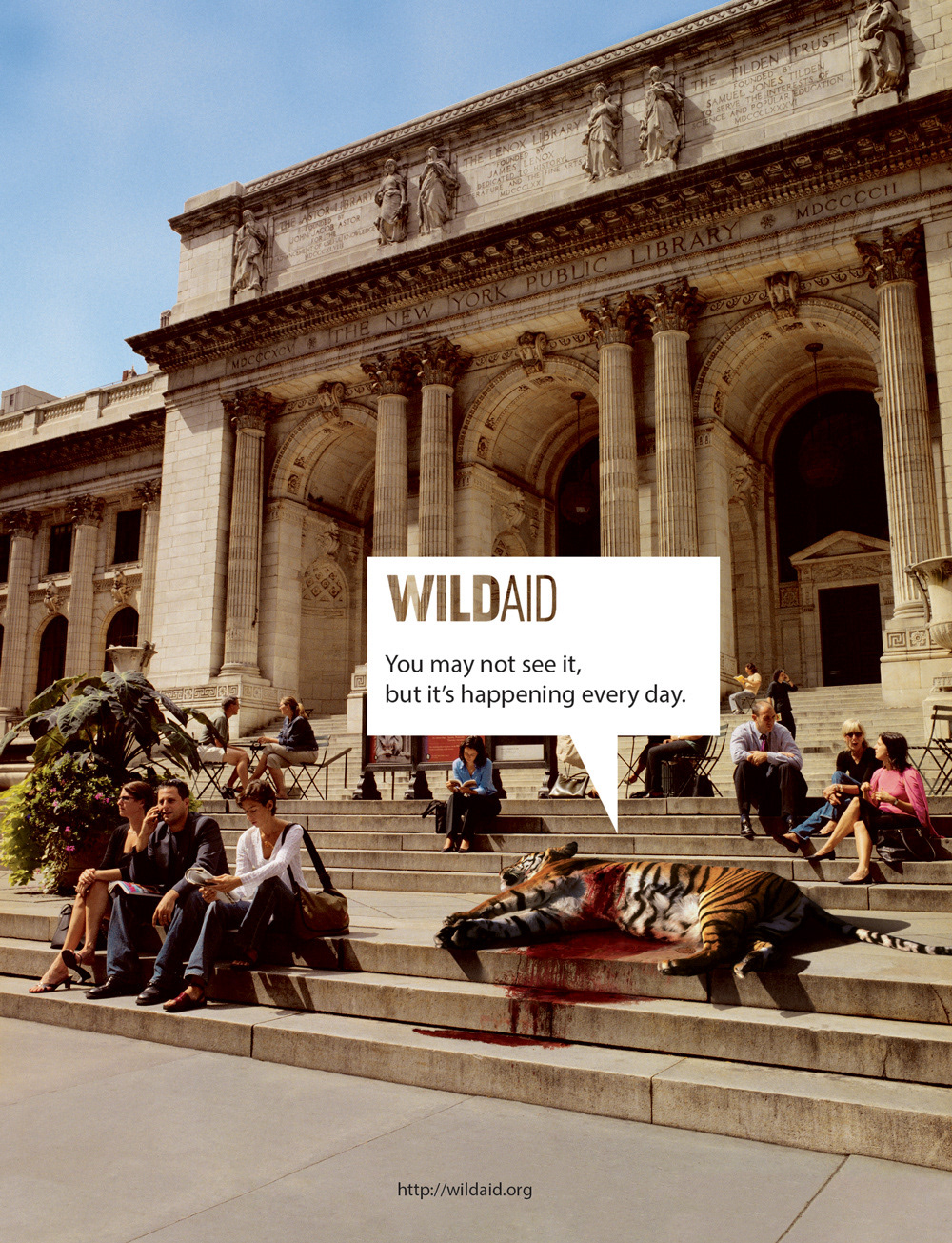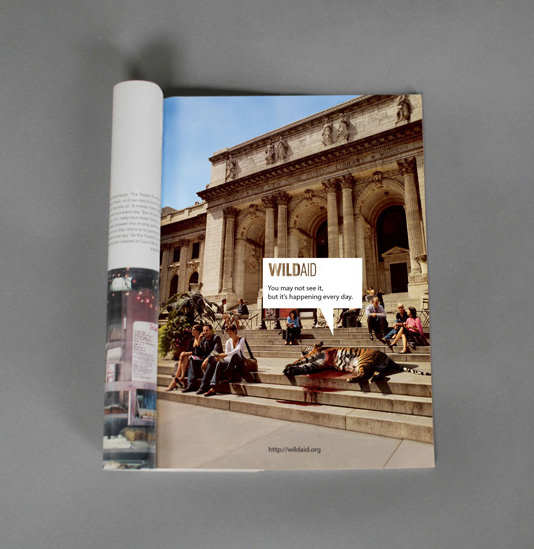WILD AID
Every year, hundreds of millions of dollars are spent protecting animals in the wild, yet virtually nothing is spent on stemming the demand for wildlife parts and products. WildAid is the only organization focused on reducing the demand for these products.
Print campaign in outdoor sports magazines and travel publications reminding newyorkers of the horrible facts and introducing Wild Aid with a pledge for donations to equip and train local rangers.


COPY: Whale sharks are hunted by the thousand just to satisfy Asia’s luxury food market. We’re working with the international community to protect them while there’s still time. Every dollar of your contribution goes directly to the fight. www.wildaid.org
With an unrivalled portfolio of celebrity ambassadors and global network of media partners, Wild Aid was able to deliver high-impact, culturally-sensitive multimedia campaigns, leveraging well over $200 million (USD) in pro-bono media support, and reaching one billion people every week.
Mo Green donated his time and title as the world's fastest man for the Wild Aid cause. Larry Wade - 110 m hurdles Olympian and four time world champion and Atlanta gold medalist Alan Johnson followed in his tracks making themselves available for a short pro-bono shoot in London. The resulting spots were aired in China and Asia during the Beijing Olympics.
Wild Aid distributed stacks of “Shark Cash”, at the U.N. CITES meeting in Chile. The delegates of the conference were persuaded to place the Whale Shark on the International Endangered Species list, making it the first marine animal to receive this protection. A documentary and print materials explaining the plight of all sharks were used at U.N. CITES events around the world.
UN CITES conference pitch:
Tourists now spend $30 million a year to see the Whale Shark. Ecotourism is growing by 15% annually. So if you’re one of the 96 countries with Whale Sharks in your waters, you could make millions too. But there’s a catch. Handful of countries are fishing the Whale Shark to extinction, killing your chances to benefit from the ecotourism boom. Vote to protect the Whale Shark. They’re worth more in the water than on a dinner table.
Tourists now spend $30 million a year to see the Whale Shark. Ecotourism is growing by 15% annually. So if you’re one of the 96 countries with Whale Sharks in your waters, you could make millions too. But there’s a catch. Handful of countries are fishing the Whale Shark to extinction, killing your chances to benefit from the ecotourism boom. Vote to protect the Whale Shark. They’re worth more in the water than on a dinner table.
A different money concept was used for the following UN meeting - real money was stencilled with a message reminding the delegates of the Whale Sharks's worth.